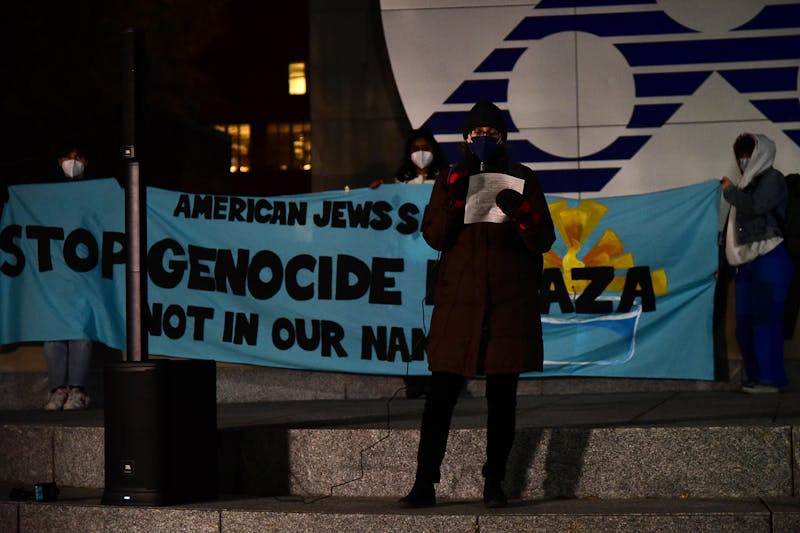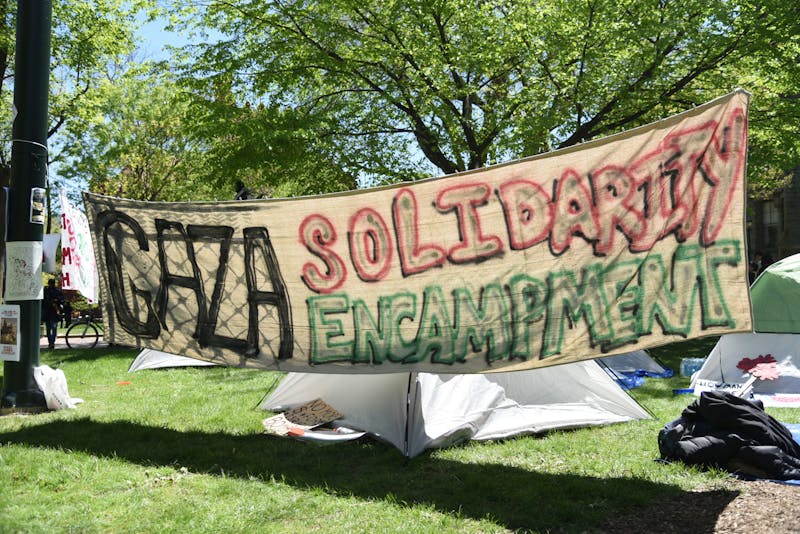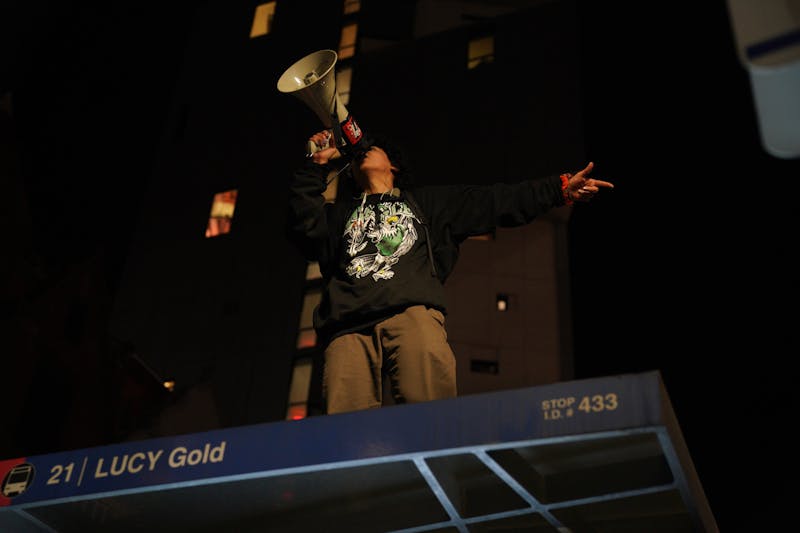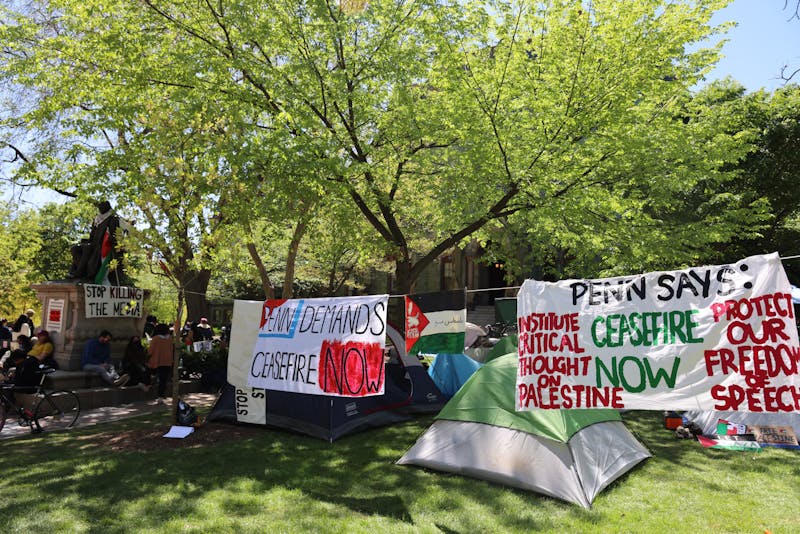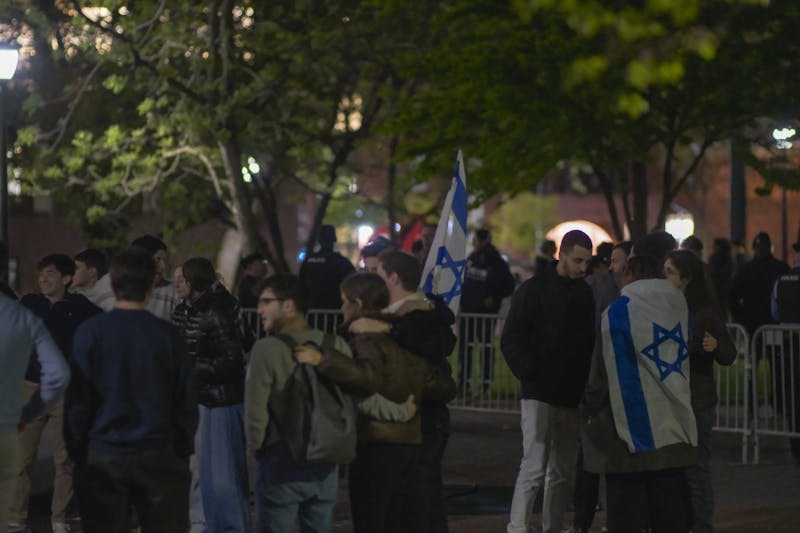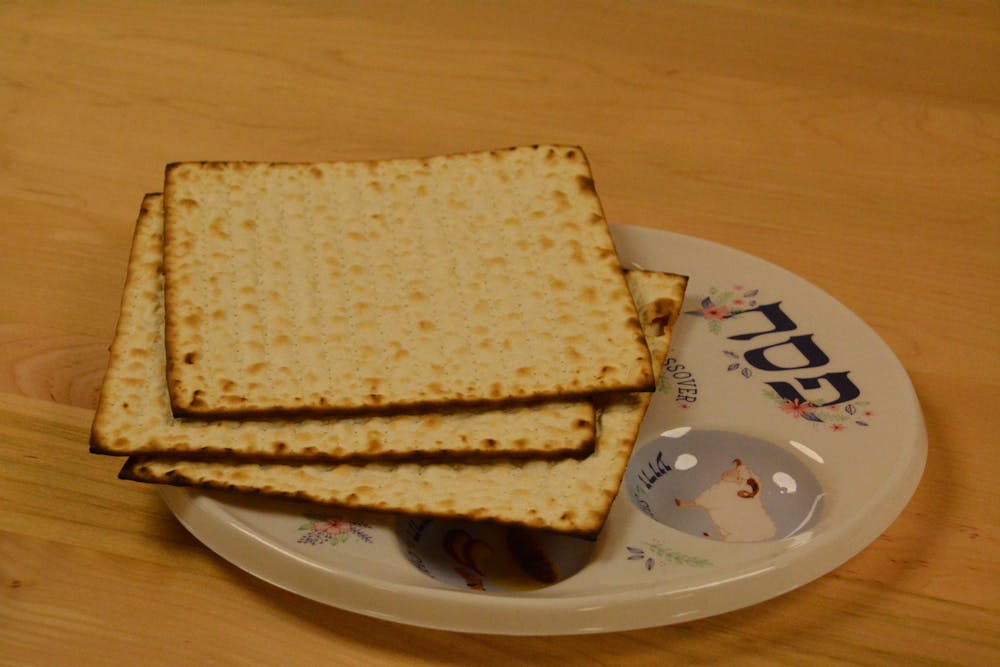
As a precaution for potentially miscalculating the true first night of Passover, it is traditional to hold a seder two nights in a row when outside the land of Israel.
I celebrated the Passover Seder three times this year.
This semester, I participated in a Jewish and Muslim discussion group: one of many campus initiatives fostering student dialogue about the current war in Gaza. We initially planned to attend both a communal iftar and a seder together, but were not all on campus on the first or second night of Passover, when sedarim are traditionally held. No problem. With 40-plus Passover Sedarim under my belt, I offered to host one myself. We decided to meet on Sunday night before the holiday officially began.
The night before our seder convened, I stayed up until 4 a.m. watching footage of the protests at Columbia University. I felt numb seeing many nonviolent protesters (many of whom were Jewish) get hauled away by the police and felt terror watching videos of explicitly antisemitic threats and slurs being chanted and specifically directed at Jewish students, many of whom I knew personally. I felt conflicted about the public statements condemning the protests and repulsed that speaking up against antisemitism had become politicized. I wished that condemning antisemitism and protecting free speech at the same time could be a politically viable opinion in 2024. I felt bewildered by how politicians who once aligned themselves with Nazi sympathizers could be lauded as protectors of the Jewish people. I felt confused as to why defenders of equality and civil rights could not speak out against a minority of protesters espousing hate.
I felt guilty that my next thought was apprehension of when this unrest would inevitably reach Penn. I was dreading our conversation at the seder the next day. I did not feel confident having such an emotionally fraught conversation with people I was not sure with whom I would agree. But I showed up anyway.
The seder began light heartedly. We recited blessings over grape juice and held our noses for bites of charoset, matzo, and horseradish. We compared the Passover tradition of hiding and collecting ransom for a piece of matzo with the Desi tradition of stealing a groom’s shoes at a wedding. I learned that Moses and the Exodus story are largely included in the Quran.
I soon felt comfortable sharing my complicated reactions to the protests at Columbia. I realized that videos of antisemitic threats don’t travel very far out of the Jewish media sphere and how that not knowing reinforces the suspicion of politicians denouncing protests as antisemitic. I affirmed my deep humanitarian concerns about the crisis in Gaza, and the cycles of violence that have led us to this point, as well as my conviction for free speech and nonviolent protest. I expressed frustration with how police presence escalates protests and wondered how we could guarantee safety for all students by other means.
I did not, however, have to explain the primal concern for the wellbeing of my community that underscores my years-long political investment in the conflict. Or how that sense of community transcends time and place because of rituals like the seder and its text, the Haggadah. I also did not have to explain why so many people who I love call Israel their home and the centrality of that place in Jewish liturgy and religious tradition. Everyone at my seder could see and read that for themselves.
I also did not have to restate my commitment to dialogue and understanding or my belief that the safety of all people in the land is intrinsically connected. My presence in the room and every conversation before it made that clear.
The most immediately practical takeaway from my seder was realizing the extent to which all parties in this campus conflict consume radically different news. Our perceptions of the protests at Columbia, and the war in Gaza, are filtered through the lens of X’s algorithm and our community affiliations. Confronting and supplementing those differences is critical for promoting honesty and accountability in discourse.
Alongside uncovering misconceptions, my seder assured me of how much my peers value the theoretical and communal contours of my personal beliefs. They understood the part that I can never put into words because they took the time to immerse themselves in it directly. We have taken the time to do that for each other this semester. These shared experiences and honest conversations have a double effect of promoting direct understanding and building up enough trust on the basis of each other’s opinions to support enduring disagreement.
There is no future for dialogue on campus that is separate from a present reality that we are willing to manifest. We find our common ground by cultivating it and asking good questions about what the other side really believes and why. To get in the room, we must confront our worst expectations of those whose opinions and backgrounds we assume and have not asked about.
We have two sedarim because we cannot be sure when the true first night of Passover falls. Out of an abundance of caution for potential miscalculation, the Jewish tradition explores each of the Hagaddah’s myriad philosophical and religious inquiries twice in a row and still finds new things to discuss. To be on the safe side, put yourself in a place to ask questions again and again. There is no limit to the discovery that can take place, especially when you think you have already heard the answers.
MADELINE KOHN is a College sophomore studying urban studies from Lower Merion, Pa. Her email address is kohnm@sas.upenn.edu.
The Daily Pennsylvanian is an independent, student-run newspaper. Please consider making a donation to support the coverage that shapes the University. Your generosity ensures a future of strong journalism at Penn.
Donate







